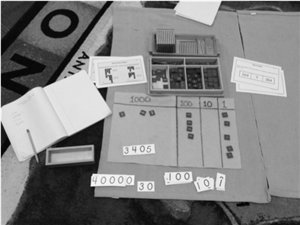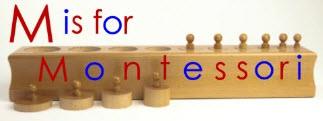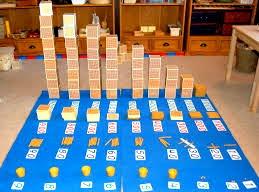- Tudor Elementary
- Montessori
-
What is Montessori?
The Montessori Method of education, developed by Dr. Maria Montessori, is a child-centered educational approach based on scientific observations of children from birth to adulthood. It is a view of the child as one who is naturally eager for knowledge and capable of initiating learning in a supportive, thoughtfully prepared learning environment. It is an approach that values the human spirit and the development of the whole child—physical, social, emotional, and cognitive. Montessori’s Method has been time tested with over 100 years of success in diverse cultures throughout the world.
Components necessary for a program to be considered authentically Montessori include multi-age groupings that foster peer learning, uninterrupted blocks of work time, and guided choice of work activity. In addition, a full complement of specially designed Montessori learning materials are meticulously arranged and available for use in an aesthetically pleasing environment.
The teacher, the child, and the environment create a learning triangle. The classroom is prepared by the teacher to encourage independence, freedom within limits, and a sense of order. The child, through individual choice, makes use of what the environment offers to develop himself, interacting with the teacher when support and/or guidance is needed.
In the elementary years, the child learns to organize his thinking through work with the Montessori learning materials and an interdisciplinary curriculum as he passes from the concrete to the abstract. He begins the application of his knowledge to real-world experiences.
This organization of information—facts and figures—prepares the child for the world of adolescence, when thought and emotion evolve into understanding more abstract, universal concepts such as equity, freedom, and justice.
In-person tours of the Montessori program will be available in February. Questions? call 907-742-1050.
Frequently asked questions:
How can children learn if they're free to do whatever they want?
Dr. Montessori observed that children are more motivated to learn when working on something of their own choosing. A Montessori student may choose his focus of learning on any given day, but his decision is limited by the materials and activities—in each area of the curriculum—that his teacher has prepared and presented to him. Beginning at the elementary level, students typically set learning goals and create personal work plans under their teacher’s guidance.

If children work at their own pace, don't they fall behind?
Although students are free to work at their own pace, they’re not going it alone. The Montessori teacher closely observes each child and provides materials and activities that advance his learning by building on skills and knowledge already gained. This gentle guidance helps him master the challenge at hand—and protects him from moving on before he’s ready, which is what actually causes children to “fall behind.”
Can Montessori accommodate gifted children? What about children with other special learning needs?
An advantage of the Montessori approach—including multi-age classrooms with students of varying abilities and interests—is that it allows each child to work at her own pace. Students whose strengths and interests propel them to higher levels of learning can find intellectual challenges without being separated from their peers. The same is true for students who may need extra guidance and support; each can progress through the curriculum at his own comfortable pace, without feeling pressure to "catch up."
We might note that from a Montessori perspective, every child is considered gifted, each in her own way. Every child has his own unique strengths—it is all a
matter of degree.What is the application process?
Students turning 5 years old, on or before September 1st for the school year, can apply (in February) at: www.asdk12.org/welcome/lottery/. Students who live in the Tudor Attendance Zone or who have a sibling in the program are given preference. Be sure to pay attention to deadlines for applying.
What is it like to be a Montessori Student?
-
 The ages in an authentic Montessori classroom typically span three years. The older children serve as role models and helpers, and each student feels supported as part of a close, caring community.
The ages in an authentic Montessori classroom typically span three years. The older children serve as role models and helpers, and each student feels supported as part of a close, caring community.From an early age, students are encouraged to be independent and self-directed. They should be free to move about the room, to speak with one another, and to responsibly choose an activity and a place to work on it. Listen for a busy hum of activity as children engage in individual or small-group lessons, ask questions or offer assistance, or go intently about their work.
Montessori teaches respect for oneself, for others, and for the environment, and this should be evident throughout the classroom. Look for students to handle materials respectfully and carefully and replace them after use. Watch for examples of courtesy and camaraderie, for unsolicited kindnesses, and for disagreements handled with civility and respect.
What can be expected from a Montessori Teacher
-

Teachers educated in the Montessori Method bring distinctive skills to the classroom. A Montessori teacher must be a keen observer and a thoughtful guide. By knowing each student's interests, academic level, and learning style, they choose materials and activities that will entice each one to learn. They serve as a resource as students go about their work, and help them move through the curriculum as they master new concepts and skills. Don't expect to see the teacher as the center of attention. They will be circulating throughout the classroom - and sometimes sitting on the floor - as they demonstrate materials, give a small group lesson, and quietly note how each student is progressing. Teachers are also expected to model important Montessori values such as empathy, kindness, and individual responsibility. Observe how teachers treat children respectfully by speaking gently and at eye level, and how they redirect inappropriate behavior in a positive and loving way.
Information & Lottery
-
Tudor Montessori Website

